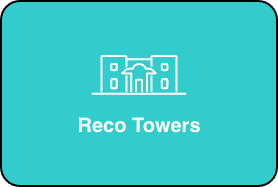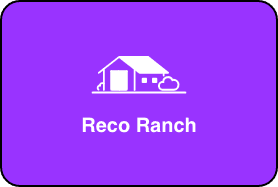Lasting Lifestyle Changes: 8 Ways to Change Your Life After Rehab


Research shows that making the transition from sober living homes to a successful life post-rehab depends on making lifestyle changes in four major areas.1 Addiction is a chronic relapsing disease and needs supportive management to build a foundation for recovery through:
- Home. Having a safe, sober, and stable place to live.
- Purpose. Achieving independence and participating in society.
- Health. Making informed choices to support physical and mental health.
- Community. Developing relationships, giving back, and maintaining access to resources that support sobriety.
These broad areas of focus apply to each individual differently, as each path to recovery has a unique history and obstacles to overcome. These eight specific lifestyle changes you can make to support a successful recovery are based on these four core values.
1. Changing Your Home Environment to Support Recovery
Evidence clearly shows that the home environment plays a major role in preventing relapse.2 Sometimes, with the best of intentions, your family relationships may have become co-dependent. Friends, partners, and even employers may have been enabling your addiction in the past, and their habits may not have changed.
Having a sober living environment provides a safe haven for you to rest from the stresses and triggers of the outside world. The home should be kept free of alcohol, drugs, and visual or auditory triggers, including artwork and music associated with addictive behavior in the past.
Protecting your ongoing recovery starts with a strong home base. Do not underestimate the importance of changing the environment around you when it comes to changing your daily life. Fill your home with artwork, music, people, and things that are healthy, supportive, and healing.
2. Changing Your Social Life and Activities to Protect your Sobriety
Many recovering addicts had reached a point of near “rock bottom” before they sought out help in beating their addiction. They may have no friends left who were not enabling or participating in their drug use. During therapy and treatment, these individuals come to realize that their existing relationships were toxic and unhealthy.
Developing new healthy relationships and repairing those that were damaged or broken by the destructive force of addiction is a vital step toward staying sober. Staying involved in recovery meetings and support groups will offer opportunities to meet new people while gaining access to sober events and resources to prevent relapse.
There might be a temptation to stay in that safe home you’ve created, whether from shame, fear, or a lack of connections, but loneliness and depression put you at risk of returning to old habits. Accept help and invitations to socialize from those who want to support your recovery and rejoin the social scene in a new and inspiring way.
3. Changing Your Work Life, Education, or Career Goals
Finding purpose, meeting responsibilities, and working toward your goals will eliminate boredom and combat depression. No matter your starting point, you can achieve great things by working with purpose, planning, and intention.
Rehab programs often provide a transitional employment opportunity for those who do not have a job that supports their recovery. Going to work or volunteering provides a reason to get up and get moving each day and a sense of accomplishment at the end of it. This purposeful activity helps restore trust and self-confidence.
There may be financial problems to face as a result of past choices, but each step toward greater security and responsibility will prove to yourself and to others that change is underway. Building a life full of purpose and accomplishment is a vital part of successful relapse prevention.
4. Identifying, Eliminating, or Avoiding Triggers for Relapse


Many times, people start using drugs or alcohol to relax or escape from stress. Once the addictive association is built between feelings of stress and using drugs, any stressful or emotional situation might trigger a craving.
Triggers and strong cravings hijack our intentions. Beyond a desire to relax, drugs offer an escape route—a way to avoid dealing with or changing the stresses in our lives. Cravings may come on suddenly and make you doubt yourself or feel like you are failing at sobriety. Actually, each unexpected craving helps identify your unique triggers so that you can take steps to eliminate or avoid them in the future.
Those who have just left outpatient facilities or sober living homes often face sudden challenges and moments of doubt. Understand that your past experiences have created the responses you have today. Becoming aware of your own unique triggers empowers you to take meaningful action and change how you respond.
5. Adopting Habits to Support Physical Health and Healing
One of the tremendous benefits of living clean and sober is the return of natural health and vitality. The body begins to recover from the tissue damage and malnutrition that often accompanies addiction.
Some of the ways to change your lifestyle to support your physical health and recovery include:
- Eating a healthy and varied diet, including vegetables, fruits, and nuts
- Eating three meals a day and having healthy snacks available
- Taking nutritional supplements as recommended
- Getting enough sleep on a regular schedule
- Exercising daily for 20-30 minutes
- Getting regular checkups and medical care
- Actively managing any co-occurring medical conditions
6. Finding, Building, and Maintaining a Sober Support System
The support, encouragement, and motivation that healthy human relationships provide is a powerful tool in preventing relapse. When transitioning from rehab or a sober living house, take advantage of follow-up group therapy or outpatient treatment to avoid going it alone.
Be realistic in your expectations of yourself. Communicating with your friends and family about how to support you will put their helpful intentions to good use. Take inspiration from online support forums, AA, NA, a house of worship group, and anywhere you find people who believe in your ability to overcome your addiction.
7. Supporting Mental Health and Expanding Your Experience
Your own unique beliefs and interests will help guide you to the best treatment program for your mental health and healing. Exploring spirituality and building mental resiliency will enable you to cope with life’s challenges in a new and powerful way.
Some practices which can help the mind and spirit heal from addiction include:
- Stretching, exercise, yoga, and mediation
- Martial arts such as Tai Chi
- Visualization practice or positive affirmations
- Crafts which focus the mind, such as pottery or painting
- Problem-solving hobbies like engine repair or restoration
- Creative pursuits of any kind, including writing or building
- Walking, hiking, or camping in the outdoors
- Reading, learning, or expanding your knowledge and skills
- Attending counseling or therapy sessions for stress or anger management
8. Inspiring Others and Giving Back to Your Community


Helping others and being a positive force in your local community will enrich your life, help you build exciting new relationships, and make amends for past actions that hurt those around you. While it is not possible to rewrite the past, we can choose to be part of a better future.
Choosing to contribute to improving the lives of people around you will yield the sense of accomplishment that only comes from making a concrete and visible difference in the world. You might decide to become a mentor for those in early recovery, participate in community cleanup events, or offer support to someone who is sick or disabled.
Becoming proud of who you are is easier when your hard work takes a visible and concrete form. Sharing your time, talents, and experience with others benefits them while restoring your own faith in the power of a caring community. By coming together and helping each other, recovering addicts can be a positive force for change.
Transforming Lives and Lifestyles with Advanced Addiction Treatment
One of the best ways to make a lasting lifestyle change is to start your addiction treatment at a sober living facility. In Delray Beach, FL, RECO Institute offers comfortable sober housing with supervision, support, and evidence-based addiction therapy available onsite.
To help you transition smoothly to a sober lifestyle and provide the community support and resources that can make the difference in long term recovery, we partner with RECO Intensive outpatient services and community support groups. This network of sober friends and mentors helps bridge the pitfalls of early sobriety and sets you or your loved one up for success in the real world.
Contact us today or chat with a specialist online to find out how RECO Institute can help connect you to the resources and network that have helped so many individuals in our community achieve their goals and break free from the limitations of addiction.
Sources:















